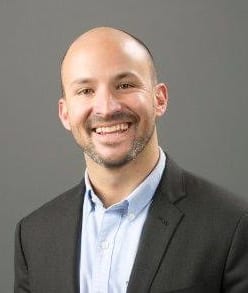By Andrew Cohen

As startup fever continues to sizzle, more entrepreneurs and investors—especially in the San Francisco Bay Area—covet expert analysis of the legal issues that impact new ventures. Adam Sterling ’12 is determined to help Berkeley Law deliver it.
Along with some former co-workers and other startup experts, Sterling recently hosted an engaging “Form and Fund” conference organized by the Berkeley Center for Law and Business. Part of the nascent Startup@BerkeleyLaw program, it marked the first in a series of monthly workshops the school will host that cover key issues affecting startups—and offer pro bono office hours with expert attorneys.
Sterling, the center’s executive director, opened the event with an illuminating presentation that covered a range of topics: entity formation, human resources and personnel issues, intellectual property (IP) considerations and strategies for raising money from investors. He teaches the same material each month at San Francisco’s Nasdaq Entrepreneurial Center—one of several courses offered there by Startup@BerkeleyLaw.
“We provide an overview of basic law surrounding the formation and financing of startups with an emphasis on those anticipating venture capital finance,” said Sterling, a former startup lawyer. “Our twin goals are to train students and provide valuable legal education and services to the Berkeley community.”
After Sterling’s presentation, four of his former co-workers at Gunderson Dettmer—Bradley Krack ’11, Maggie White, Jesse Birbach and Darin See—held a 90-minute “Attorney Office Hours” session. Each was paired with one or two students from Berkeley Law’s New Business Practicum, which helps launch emerging area startups by providing early-stage legal advice.
One group focused on IP issues, while others discussed incorporation, fundraising and personnel considerations. The participants—many of whom recently formed companies or are considering launching one—further probed topics Sterling covered in his preceding talk, such as IP protection, contracts and liability.
Insider insights
The session presented an intriguing synergy between risk-taking entrepreneurs and lawyers tasked with reducing that risk through legal agreements. The lawyers stressed the importance of closely examining all legal aspects of a new business early on to minimize future conflicts.
Mohammed Ghasemzadeh, a UC Berkeley Haas School of Business student, recently developed a networking app that lets people quickly share abbreviated, customized personal information at events. “It’s great to be able to get some legal direction on incorporation and IP management from people who have been there and done that for other startups,” he said.
New Business Practicum law students also praised the session’s pragmatic value. Mona Fang ’16 noted that while it was helpful to understand the recurring challenges confronting startups, the attorneys emphasized how “every case is different when you’re starting a company, and there’s no one answer that fits all questions.” Echoing that sentiment, Jennifer Cho ’16 said the attorneys “were all good communicators, very engaged, and didn’t practice legalese. They used analogies that made their points easy to understand.”

William Kell, who directs the practicum, said students “got to see how challenging transactional lawyering can be. You never know what’s going to come up, so you have to be able to cover the waterfront.”
Following the event’s Attorney Office Hours, Andreesen Horowitz managing partner Scott Kupor delivered the keynote address. Kupor, who will teach a course on corporate governance at Berkeley Law next fall, described how venture capitalists influence company formation less than they once did. “We’ve seen the balance of power shift between VCs and entrepreneurs,” he said. “There’s a growing community of entrepreneurs who understand venture capital, and the tech explosion has enabled companies to get up and running at a lower expense.”
Stressing to students the importance of networking, Kupor said, “The practice of law in Silicon Valley now is more like what the general practice of law used to be: relationship-based work. In school, the measure of success is your test grades. But extra time you spend meeting people and building relationships is important. In the startup world, that’s integral and not tangential to the work you’ll be doing and the success you’ll be able to have.”
The conference concluded with a one-hour workshop on the do’s and don’ts of venture capital fundraising, led by Cooley LLP partners Josh Seidenfeld and Seth Gottlieb and Skyline Ventures’ John Freud.